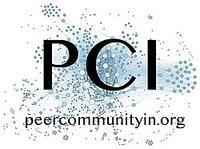How do fundamental cellular processes evolve?
Early research emphasized universal principles shared across life, but recent studies have uncovered surprising, species-specific differences in how essential functions are carried out. Chromosomes are organized, replicated, segregated, and repaired by diverse molecular assemblies — yet the evolutionary origins of this variability remain poorly understood.
We recently showed that genome maintenance mechanisms can rapidly rewire under stress, demonstrating how the evolution of cellular biology is experimentally tractable.
Our lab uses Saccharomyces cerevisiae as a model to study how cells adapt to genome maintenance challenges. We integrate molecular, evolutionary, biophysical, and synthetic biology to uncover the mechanisms that drive cellular evolution — from molecules to populations.
These insights contribute to a broader understanding of the fundamental principles of evolutionary cell biology and have significant implications for predicting evolutionary outcomes in areas such as cancer progression and antibiotic resistance.
Open Science
We do our best to promote Open Science. Below are a number of initiatives and associations we support:





